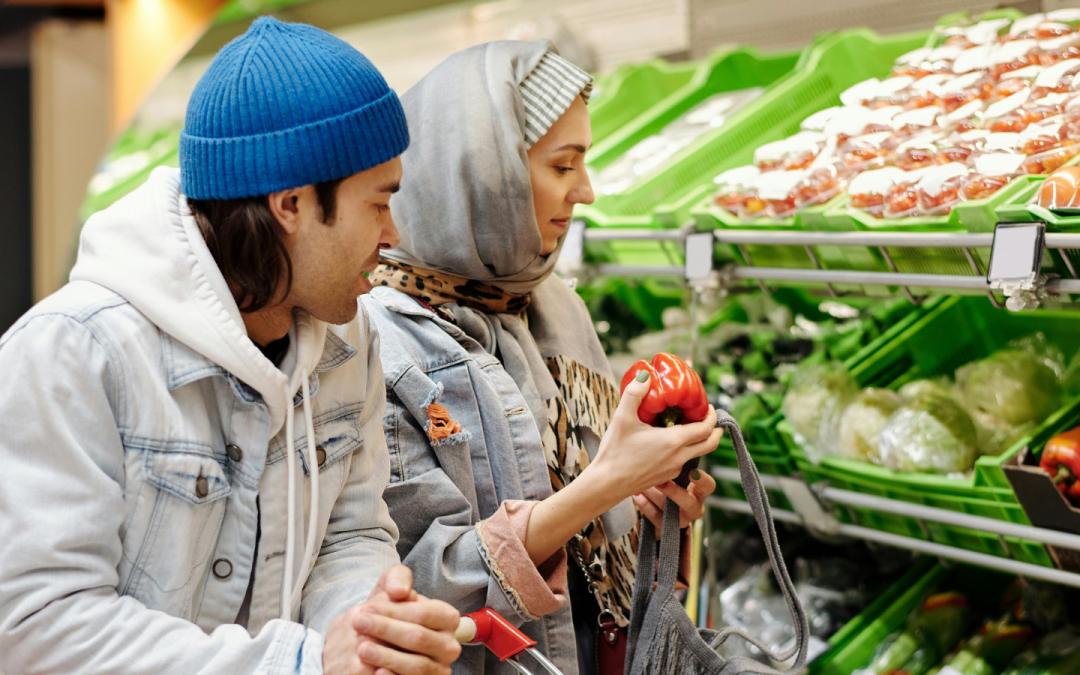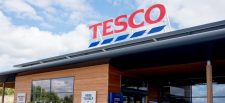Market research firm Kantar has published its supermarket share and inflation update, finding that healthier choices were driving supermarket spending.
Take-home sales at the grocers rose by 4.3% over the four weeks to 26th January compared with one year ago, according to the data. Kantar said that January “spelled relief” for shoppers as grocery price inflation slowed to 3.3% over the four weeks.
The firm found that prices were rising fastest in markets such as chocolate confectionary, chilled smoothies and juices, and butters and spreads. Prices fell fastest in ambient cooking sauces.
Fraser McKevitt, head of retail and consumer insight at Kantar, commented: “Supermarkets were dishing out the discounts this New Year, and consumers responded. Spending on promotions rose year-on-year by £274 million, accounting for 27.2% of sales – the highest level in January since 2021.
“People also turned to non-branded products to help keep costs down, with own label as a proportion of sales hitting a record high of 52.3% in January. Spending on supermarkets’ own lines was up 5.4%, helped by consumers buying premium own label products in the couple of days leading up to New Year’s Eve.”
Kantar observed a focus on wellness, with more than 10% of the average consumer’s grocery bill spent on fresh fruit, vegetables and salad, totalling £1.2 billion. This was £193 million more than in December.
Nathan Ward, business unit director for usage and out-of-home at Kantar, added: “Rolling into the new year, health tends to play a bigger role in our grocery choices. Over a quarter of take-home food and drink in January is chosen with health at least partially in mind, as shoppers tell us they want to eat less processed food and feel the benefit of fibre and vitamins.”
The firm said protein products “pulled their weight” at the tills as demand for bars, bites and drinks boosted spend on sports nutrition products. Sales for this category at supermarkets were 47% higher than last year, with over two million households buying these items during the month.
Ocado remains fastest-growing grocer
Ocado was the fastest-growing grocer for the ninth consecutive month. Spending at the online retailer grew by 11.3%, meaning it now holds 1.9% of the market. Joint owner of Ocado Retail, M&S has also seen a strong 12 week period of growth with grocery sales increasing by 10.5% in its brick-and-mortar stores.
Lidl sales rose 7.4% over the 12 weeks to 26th January, making it three continual years of growth for the discounter, whose share hit 7.2%. Aldi accelerated for the third consecutive month, with sales up 4.2% and its market share increasing to 10.2%.
Tesco gained the most share as its 28.5% hold of the market is 0.7% higher than this time last year, and it also saw its fastest rise in sales since April 2024 at 5.6%. Sainsbury’s experienced a sales growth of 4.2%, increasing its share from 15.7% to 15.9%. Morrisons had 8.6% of the market while Asda’s portion was 12.6%.
Convenience retailer Co-op returned to growth, with sales rising by 0.8% giving it a 5.2% share of the market. Waitrose maintained a share of 4.6% as sales climbed by 3%. Spending at frozen specialist Iceland was 1% higher, maintaining its share of 2.4%.









